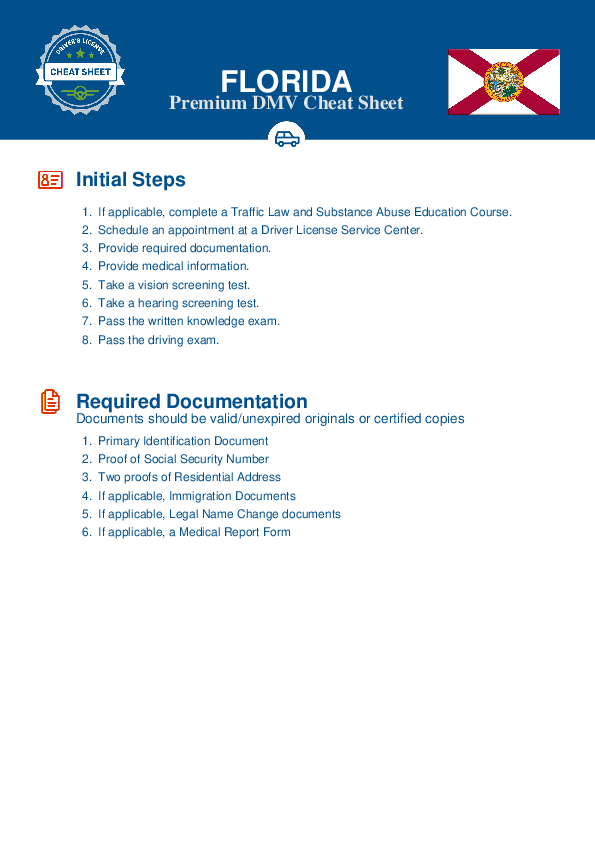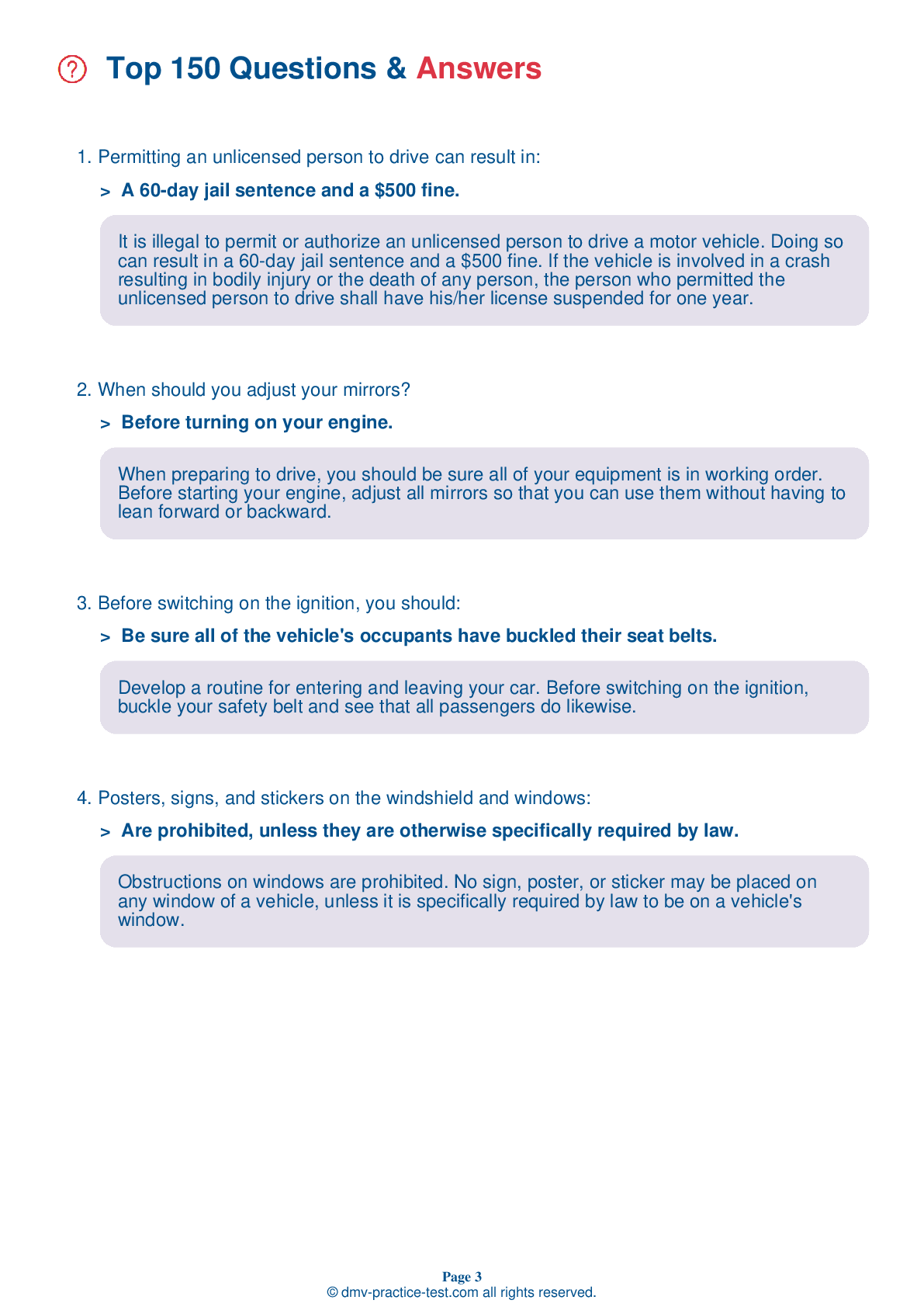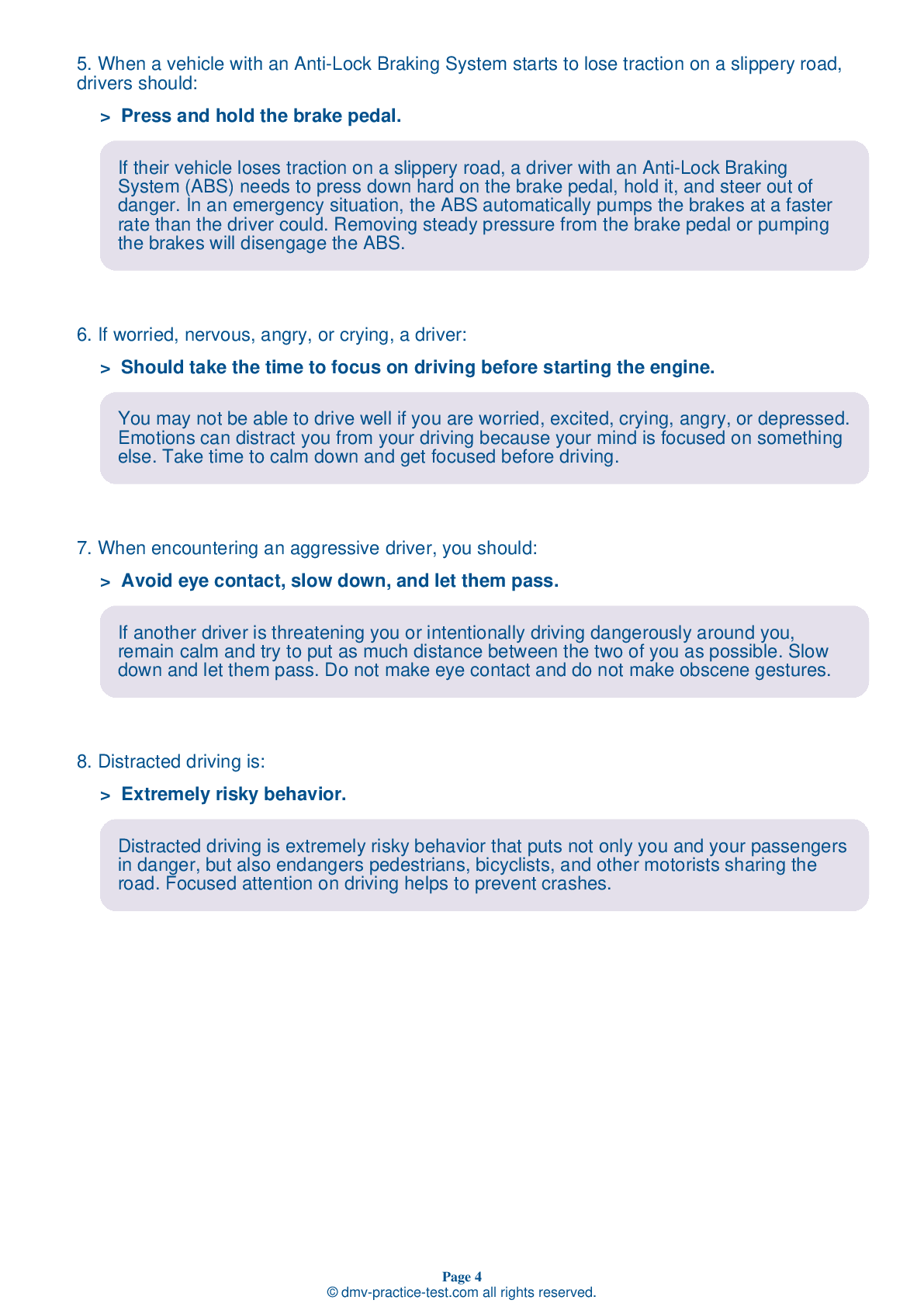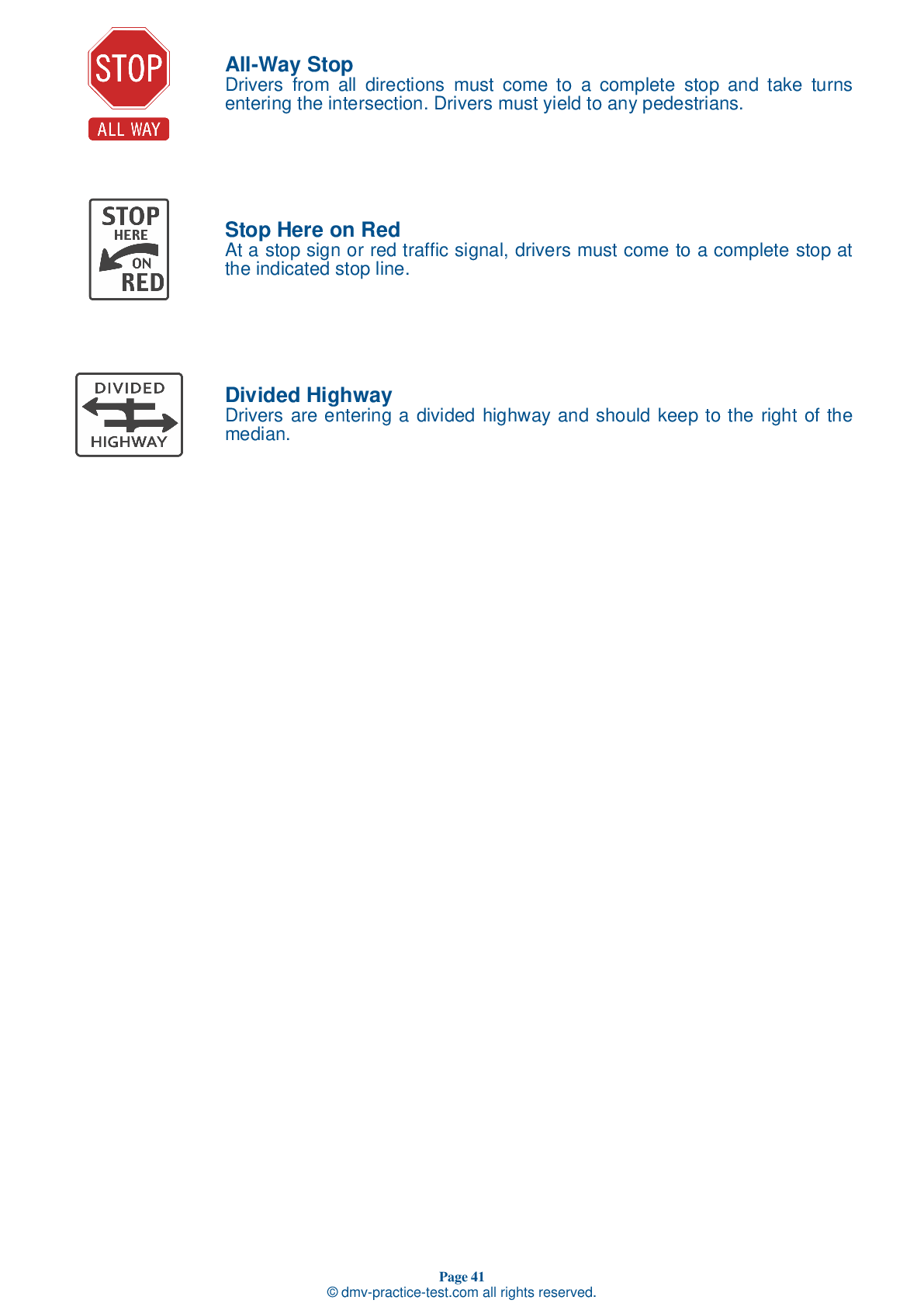FREE Florida DMV Practice Test #9 Page 3 of 7
This set of DMV practise tests for the Florida has been updated for January 2026. It includes questions based on the most important traffic signs and laws for 2026 from the Florida Driver Handbook. To study for the DMV driving permit test and driver's licence exam, use actual questions that are very similar (often identical!) to the DMV driving permit test and driver's licence exam.
Each question on the practise exam has a tip and explanation to help you recall the ideas. Questions about traffic rules, traffic signs, and driving statutes, as well as information from the Driver Handbook, will be included in the written portion of the official DMV test.
You must properly answer 40 of the 50 questions to receive the required passing mark. To help you prepare for your Florida instruction permit or driver's licence, take our DMV practise test.
The DMV exam is offered in a variety of languages.
Using any kind of testing assistance will result in an automatic fail, and the DMV may take additional action against your driver's licence, so stay away from it.
15 . Drinking alcohol and driving is:
Driving while impaired or intoxicated is a serious traffic safety problem. Safe driving is not possible when you drink alcohol or take other drugs. Driving under the influence is dangerous both to you and to others on the road.
16 . Distracted drivers are at a greater risk of a crash when they are using which of the following?
Using a cell phone (including a hands-free phone) or any kind of audio device (including a radio or CD player) can be a dangerous distraction and contributes to the risk of a crash.
17 . To ensure that your physical condition does not cause you to drive in an unsafe manner, you should:
Your physical condition has an important bearing on your ability to drive safely. Drivers should be aware of their physical limitations and only drive if it is safe to do so.
18 . The best way to deal with tailgaters is to:
Check the traffic behind you several times a minute to know if another driver is tailgating, approaching too fast, or trying to pass. If another car is following you too closely, slow down and let it pass. Most rear-end collisions are caused by vehicles following too closely.
19 . Which of the following does not happen after drinking?
Alcohol reduces your reaction time, reduces your ability to see clearly, changes your judgment of speed and distances, reduces your ability to recover from the glare of headlights, and often reduces your inhibitions and makes you more likely to take risks.
20 . If two vehicles arrive to a four-way stop at the same time:
In general, vehicles at a four-way stop should proceed in the order that they arrive. However, if two vehicles arrive to the intersection at the same time, the vehicle on the left must yield the right-of-way to the vehicle on the right.
21 . Drivers must yield to a pedestrian:
Drivers must always yield to pedestrians in the street, even if they are crossing against a red light or are otherwise being careless.
Need Car Insurance? No problem!
Compare the best rates in Florida and find a personalized policy that meets your needs.
1. Are You Currently insured ?
2. Married ?
3. Do you own your Home?
4. Do you have more than 1 car ?
5. Have you or a Family Member Honorably Served in U.S. Military ?
6. Your Name
7. Age
8. Zip code
IMPORTANT REMINDER:Auto Insurance is Mandatory to drive in Florida. Get covered before you hit the road to avoid any fines.
Ranked by best match



